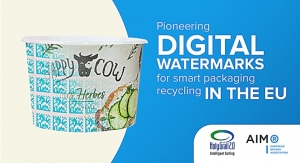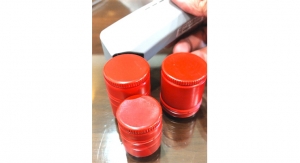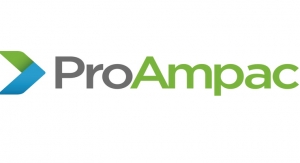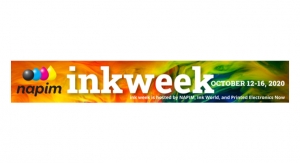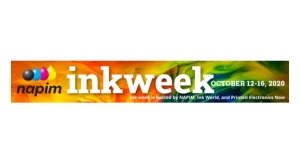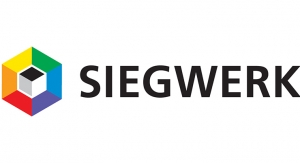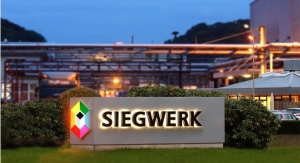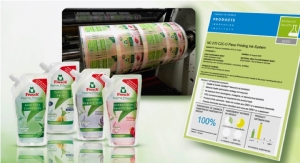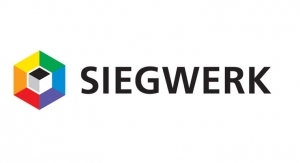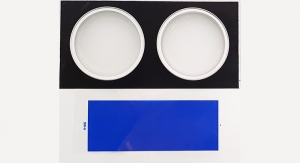David Savastano, Editor11.08.18
Smart packaging is an excellent opportunity for brand owners, retailers and customers alike, as the ability to share and receive more information is a tremendous benefit in so many ways, from brand authentication to analytics and simply communicating with the consumer about the product.
The challenge is to make the packaging “intelligent,” to be able to communicate through NFC, Bluetooth or other means. Printed electronics is a promising area of opportunity for smart packaging, as it can create the intelligence needed at a cost-effective price. The goal is to be able to actually print the package.
Prismade Labs GmbH is developing a solution that could make smart packaging more widespread. Founded in 2016 by Dr. Karin Weigelt and Jan Thiele, Prismade, or “Printed Smart Devices,” is a FutureLab of the edding Group. Prismade works with its customers to develop and manufacture intelligent printed products.
Dr. Weigelt and Thiele have been in the printed electronics field for more than a decade.
“We are the original inventors of the Touchcode technology,” Thiele noted. “At the company we founded first, Printechnologics, we were a part of 3Ms New Venture business and later merged our company with New York-based T+ink. In 2016, Karin and myself decided to make a fresh start and develop new ideas. So Prismade (Printed Smart Devices) was born in summer 2016. In 2017 we found a wonderful new partner, the edding corporation. Right now, we are setting up an even deeper relationship with edding to jointly create and market new products out of our technologies.”
Thiele said he sees the technology and the market evolving quickly.
“When we started our journey with printed electronics in 2007, our customers were still doubting the potential of smartphones,” Thiele added. “That has of course changed now and in the past years many brands have made their own experiences with various digital features and applications. Today finally, it seems that the market as well as our new technology is ready for the big breakthrough.”
Prismade’s technology enables smartphones to interact with printed electronic structures. After placing the packaging onto their smartphone’s screen, the user swipes their finger over the packaging, enabling interaction on the smartphone.
In partnership with Siegwerk, a global leader in the field of printing inks for packaging and labels, Prismade is developing innovative folding box applications for interactive communication.
“With Siegwerk as a development partner at our side, we can successfully scale our technology, secure the functionality of our process with ink systems developed specifically for us and strengthen our application potential,” said Dr. Karin Weigelt, managing director of Prismade Labs.
“We have never seen such open mindedness and quick turnarounds on new developments,” Thiele said. “Siegwerk will develop fully customized ink sets to work hand in hand with our technology. This way we can offer production feasibility and support for almost any print method and application.”
For Siegwerk, the collaboration with Prismade came about through its 2017 start-up program.
Christoph Barniske, head of digital business at Siegwerk, said that Siegwerk wants to shape the future of packaging by developing cutting-edge ink solutions that enable the manufacture of groundbreaking and innovative packaging concepts.
“We have already seen some customer demand on inks with smart pigments in the past,” Barniske added. “But since we have established our digital business unit in 2017, we have finally created capacities to concretely look into this kind of ink demand to further drive interactive possibilities between packaging and digital devices, thus enabling promising new packaging opportunities with innovative ink solutions.”
Thiele sees the biggest potential in security-related applications like brand protection, tamper evident packaging, lottery applications, document security, ID documents and more. “But, of course, with our new approach regarding interactivity, there is also huge potential in interactive packaging as well as marketing and promotions, where we can add a new playful twist to print products without adding any recyclability issues,” he added.
Barniske said he is seeing a lot of interest in smart packaging and printed electronics, and functional inks are an important driver for these applications.
“For us, smart packaging will certainly have a strong impact on the future of packaging as it interactively connects products and consumers addressing today’s increasingly digital world,” he continued. “Adding any kind of unique feature to the packaging to make it more intelligent, increases the need for innovative ink solutions that include smart and functional pigments.
“So far, there exist many ideas on use-cases significantly arousing more and more interest for the topic within the packaging printing industry,” Barniske added. “Several start-ups already tapped into this trend working on relevant use-cases like for example in the area of anti-counterfeiting. The demand for interactive technologies for brand authentication and document security is definitively increasing, making the area of smart packaging and printed electronics more than interesting for us.”
Thiele noted that Prismade’s PrismaID technology is more secure than QR codes and far less expensive than RFID/NFC while at the same time being fully recyclable.
“We are using a unique approach to harness the ‘power’ of the human body and through our printed electronic structures, we can modify that into a signal that can be detected by any smartphone,” Thiele said. “We do not need a printed display, battery or other complex systems because that already exists in our smartphones. With this approach, we can keep the printed electronics part very simple and thereby low cost and recyclable. NFC, for example, even the least expensive versions, are unable to reach that price point and on top they transform a paper pack into electronic waste. We can avoid all that while delivering comparable features.”
The technology that Prismade has developed is well suited for printing.
“On the production side, we are entirely focused on working with standard industrial machinery,” Thiele noted. “This enables our customers to work with almost any printing facility and avoiding changes in the supply chain. Everything that we do is build, with low adoption barriers in mind. We license the use of our technology and support our partners along the way regarding print production and software.”
Siegwerk did have to overcome some challenges to create its inks for Prismade. Barniske reported that one of the technical challenges was to develop customized ink solutions that are compliant with Prismade as well as general regulatory requirements, while fitting seamlessly into the already well-established converting processes of the corresponding packaging material.
“The new inks needed to be less visible and highly conductive at the same time to not interfere with the given graphic design, meaning that the high conductivity of the inks may not be negatively affected by the overlaying ink solutions that are used for printing of the actual packaging design,” Barniske said.
Prismade’s technology was introduced for the first time at Pharma PLAY, Fachpack, LUXEPACK, and will also be seen at AIPIA. The partners have jointly developed three demonstration models to give visitors a first insight into this newly-developed packaging experience; Thiele noted that the feedback at these shows was “excitingly positive.”
To create its prototypes, Prismade and Siegwerk worked together Uwe Melichar, a packaging expert from the brand agency FACTOR; Brösske, Meyer & Ruf, an agency for packaging design; and the Edelmann Group, a folding box specialist.
“These three prototypes will show different use-cases of Prismade’s technology in form of pharma, beauty and tea packaging with different functionalities like for example authentication, voucher code or digital package insert,” Barniske said.
“Together with Siegwerk and the Edelmann group, we have just finished an impressive set of interactive packaging demos that are production ready now,” Thiele added.
Siegwerk’s Barniske anticipates strong demand for smart packaging.
“The possibility of communication between the product and the consumer is certain to have an impact on the future of the packaging sector due to the increasingly digital world in which we live,” Barniske said. “But I think that we’ve just spotted the tip of the iceberg. With technology becoming cheaper and more suited for mass-market applications, packaging designers will start to play around with these new technical opportunities, further driving the demand for innovative solutions to realize new packaging concepts. We are very confident that we will see an increasing number of relevant use-cases for interactive and smart packaging solutions going forward.”
Thiele said that the interest in smart packaging has been there for many years, and with existing solutions like QR codes and NFC, this interest seems to be growing rapidly.
“However, I believe that brands still don’t have a real concept on what they are looking for,” Thiele added. “There are still too many challenges regarding consumer adoption and manufacturing viability (cost and recycling). You can’t put a 10 cent NFC tag on a 2 cent package. We believe that we will be able to fill that gap with our solution to enable printed functionalities for high volume products.
“We have reached commercialization in a number of security related applications,” Thiele concluded. “Our customers are currently field-testing and you will see those applications entering the open market early next year. We are also about to launch a new product: the ‘smart hologram’ will make brand protection more accessible and secure.”
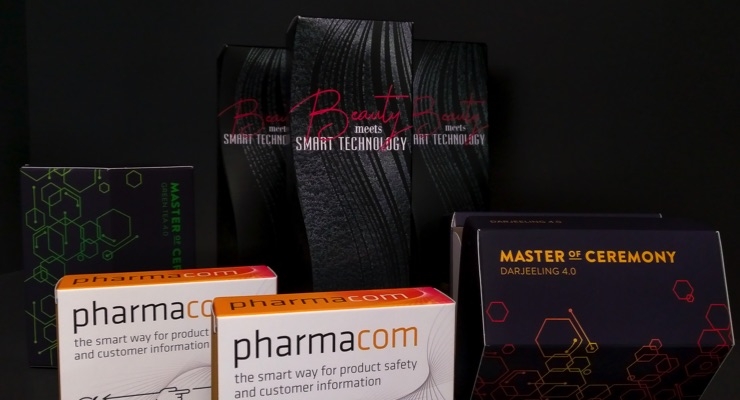
Prismade Labs and Siegwerk, in collaboration with their partners, have developed smart packaging prototypes. (Source: Prismade)
The challenge is to make the packaging “intelligent,” to be able to communicate through NFC, Bluetooth or other means. Printed electronics is a promising area of opportunity for smart packaging, as it can create the intelligence needed at a cost-effective price. The goal is to be able to actually print the package.
Prismade Labs GmbH is developing a solution that could make smart packaging more widespread. Founded in 2016 by Dr. Karin Weigelt and Jan Thiele, Prismade, or “Printed Smart Devices,” is a FutureLab of the edding Group. Prismade works with its customers to develop and manufacture intelligent printed products.
Dr. Weigelt and Thiele have been in the printed electronics field for more than a decade.
“We are the original inventors of the Touchcode technology,” Thiele noted. “At the company we founded first, Printechnologics, we were a part of 3Ms New Venture business and later merged our company with New York-based T+ink. In 2016, Karin and myself decided to make a fresh start and develop new ideas. So Prismade (Printed Smart Devices) was born in summer 2016. In 2017 we found a wonderful new partner, the edding corporation. Right now, we are setting up an even deeper relationship with edding to jointly create and market new products out of our technologies.”
Thiele said he sees the technology and the market evolving quickly.
“When we started our journey with printed electronics in 2007, our customers were still doubting the potential of smartphones,” Thiele added. “That has of course changed now and in the past years many brands have made their own experiences with various digital features and applications. Today finally, it seems that the market as well as our new technology is ready for the big breakthrough.”
Prismade’s technology enables smartphones to interact with printed electronic structures. After placing the packaging onto their smartphone’s screen, the user swipes their finger over the packaging, enabling interaction on the smartphone.
In partnership with Siegwerk, a global leader in the field of printing inks for packaging and labels, Prismade is developing innovative folding box applications for interactive communication.
“With Siegwerk as a development partner at our side, we can successfully scale our technology, secure the functionality of our process with ink systems developed specifically for us and strengthen our application potential,” said Dr. Karin Weigelt, managing director of Prismade Labs.
“We have never seen such open mindedness and quick turnarounds on new developments,” Thiele said. “Siegwerk will develop fully customized ink sets to work hand in hand with our technology. This way we can offer production feasibility and support for almost any print method and application.”
For Siegwerk, the collaboration with Prismade came about through its 2017 start-up program.
Christoph Barniske, head of digital business at Siegwerk, said that Siegwerk wants to shape the future of packaging by developing cutting-edge ink solutions that enable the manufacture of groundbreaking and innovative packaging concepts.
“We have already seen some customer demand on inks with smart pigments in the past,” Barniske added. “But since we have established our digital business unit in 2017, we have finally created capacities to concretely look into this kind of ink demand to further drive interactive possibilities between packaging and digital devices, thus enabling promising new packaging opportunities with innovative ink solutions.”
Thiele sees the biggest potential in security-related applications like brand protection, tamper evident packaging, lottery applications, document security, ID documents and more. “But, of course, with our new approach regarding interactivity, there is also huge potential in interactive packaging as well as marketing and promotions, where we can add a new playful twist to print products without adding any recyclability issues,” he added.
Barniske said he is seeing a lot of interest in smart packaging and printed electronics, and functional inks are an important driver for these applications.
“For us, smart packaging will certainly have a strong impact on the future of packaging as it interactively connects products and consumers addressing today’s increasingly digital world,” he continued. “Adding any kind of unique feature to the packaging to make it more intelligent, increases the need for innovative ink solutions that include smart and functional pigments.
“So far, there exist many ideas on use-cases significantly arousing more and more interest for the topic within the packaging printing industry,” Barniske added. “Several start-ups already tapped into this trend working on relevant use-cases like for example in the area of anti-counterfeiting. The demand for interactive technologies for brand authentication and document security is definitively increasing, making the area of smart packaging and printed electronics more than interesting for us.”
Thiele noted that Prismade’s PrismaID technology is more secure than QR codes and far less expensive than RFID/NFC while at the same time being fully recyclable.
“We are using a unique approach to harness the ‘power’ of the human body and through our printed electronic structures, we can modify that into a signal that can be detected by any smartphone,” Thiele said. “We do not need a printed display, battery or other complex systems because that already exists in our smartphones. With this approach, we can keep the printed electronics part very simple and thereby low cost and recyclable. NFC, for example, even the least expensive versions, are unable to reach that price point and on top they transform a paper pack into electronic waste. We can avoid all that while delivering comparable features.”
The technology that Prismade has developed is well suited for printing.
“On the production side, we are entirely focused on working with standard industrial machinery,” Thiele noted. “This enables our customers to work with almost any printing facility and avoiding changes in the supply chain. Everything that we do is build, with low adoption barriers in mind. We license the use of our technology and support our partners along the way regarding print production and software.”
Siegwerk did have to overcome some challenges to create its inks for Prismade. Barniske reported that one of the technical challenges was to develop customized ink solutions that are compliant with Prismade as well as general regulatory requirements, while fitting seamlessly into the already well-established converting processes of the corresponding packaging material.
“The new inks needed to be less visible and highly conductive at the same time to not interfere with the given graphic design, meaning that the high conductivity of the inks may not be negatively affected by the overlaying ink solutions that are used for printing of the actual packaging design,” Barniske said.
Prismade’s technology was introduced for the first time at Pharma PLAY, Fachpack, LUXEPACK, and will also be seen at AIPIA. The partners have jointly developed three demonstration models to give visitors a first insight into this newly-developed packaging experience; Thiele noted that the feedback at these shows was “excitingly positive.”
To create its prototypes, Prismade and Siegwerk worked together Uwe Melichar, a packaging expert from the brand agency FACTOR; Brösske, Meyer & Ruf, an agency for packaging design; and the Edelmann Group, a folding box specialist.
“These three prototypes will show different use-cases of Prismade’s technology in form of pharma, beauty and tea packaging with different functionalities like for example authentication, voucher code or digital package insert,” Barniske said.
“Together with Siegwerk and the Edelmann group, we have just finished an impressive set of interactive packaging demos that are production ready now,” Thiele added.
Siegwerk’s Barniske anticipates strong demand for smart packaging.
“The possibility of communication between the product and the consumer is certain to have an impact on the future of the packaging sector due to the increasingly digital world in which we live,” Barniske said. “But I think that we’ve just spotted the tip of the iceberg. With technology becoming cheaper and more suited for mass-market applications, packaging designers will start to play around with these new technical opportunities, further driving the demand for innovative solutions to realize new packaging concepts. We are very confident that we will see an increasing number of relevant use-cases for interactive and smart packaging solutions going forward.”
Thiele said that the interest in smart packaging has been there for many years, and with existing solutions like QR codes and NFC, this interest seems to be growing rapidly.
“However, I believe that brands still don’t have a real concept on what they are looking for,” Thiele added. “There are still too many challenges regarding consumer adoption and manufacturing viability (cost and recycling). You can’t put a 10 cent NFC tag on a 2 cent package. We believe that we will be able to fill that gap with our solution to enable printed functionalities for high volume products.
“We have reached commercialization in a number of security related applications,” Thiele concluded. “Our customers are currently field-testing and you will see those applications entering the open market early next year. We are also about to launch a new product: the ‘smart hologram’ will make brand protection more accessible and secure.”

Prismade Labs and Siegwerk, in collaboration with their partners, have developed smart packaging prototypes. (Source: Prismade)

